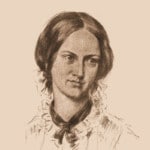Emily Bronte

Emily Jane Bronte was an English novelist and poet who is best known for her only novel, Wuthering Heights. She wrote under the pseudonym (fake name) of Ellis Bell, as she feared that publishers would not take her seriously if it were revealed that she was really a woman. King George III and Queen Victoria ruled England during Emily’s lifetime.
Born: July 30th 1818, Thornton, Yorkshire.
Died: December 19th 1848, Haworth, Yorkshire, aged 30.
Emily Bronte
Family:
Emily was the fifth child of Reverend Patrick Bronte and his wife Maria. Maria died when Emily was three years old. Emily had two older sisters called Maria and Elizabeth who both died when Emily was about seven.
Emily then grew up in the company of her sisters Charlotte and Anne, and her brother, Branwell. Charlotte and Anne became writers like Emily; Branwell was a portrait painter, but his addiction to drugs and alcohol took priority and eventually led to his death aged 31.
Famous Works
Emily wrote several poems about adventures in an imaginary world called ‘Gondol’. These were published alongside poems written by her sisters Charlotte and Anne.
Her only novel, ‘Wuthering Heights’, was first published in London in 1847, the year before she died. The author was apparently Ellis Bell; it was not revealed that the true author was a female writer called Emily Bronte until 1850.
When it was first published, critics were unsure of the book as it contained more references to passionate love and revenge than the Victorian readers were used to. Now, however, ‘Wuthering Heights’ is now considered a classic of English literature.
Brief Plot Outline
Wuthering Heights: This is a complicated tale of two families and their mansion houses. One of these was called Wuthering Heights. The plot mainly centres around an orphan called Heathcliff and his love for Catherine Earnshaw, the daughter of the family who lived at Wuthering Heights.
Famous Quotes from Wuthering Heights include:
“He’s more myself that I am. Whatever our souls are made of, his and mine are the same.”
“Terror made me cruel…”
“Honest people don’t hide their deeds.”





